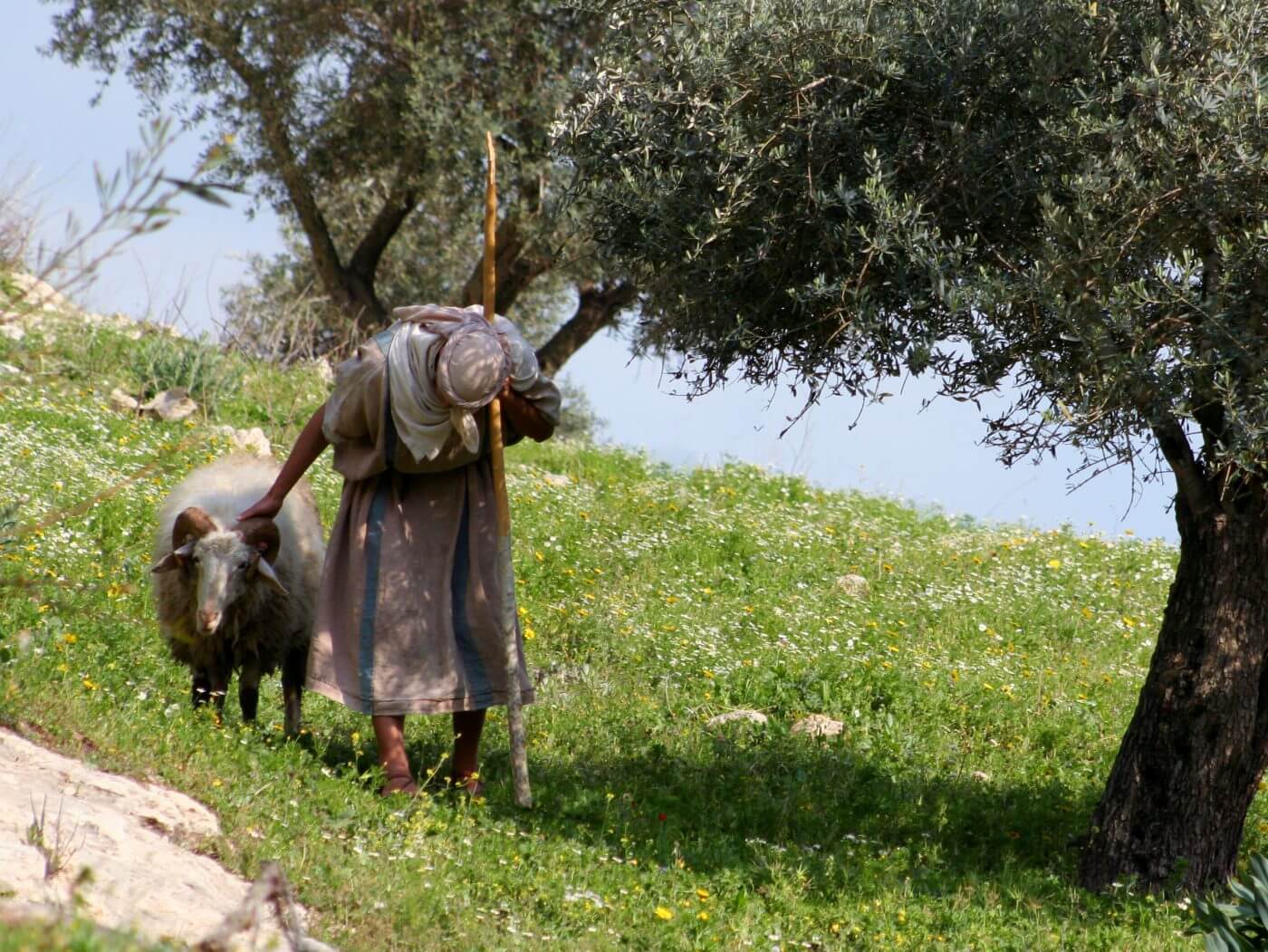
The Hike
Shepherd
Ezekiel 34:1–16

The experience of every family, school, business, church, and nation will largely depend on the quality of its leadership. If you have suffered the effects of poor leadership, this session is for you. It describes how God’s people languished under abusive leadership and how God Himself intervened. If you have been trusted with the privilege of leadership in any sphere of life, this session will show what God requires of you and how you can fulfill your calling.
There are three distinct leadership roles in the Old Testament: prophet, priest, and king. The prophets stood in the presence of God and heard the Word of God so that they could speak that Word to the people. The prophets gave leadership in the realm of truth.
The ministry of the priests related to worship. They offered prayers and sacrifices in the temple, and they brought people into the presence of God through a ministry of pastoral care and counsel.
The kings led the people into battle and protected them from their enemies. They were also responsible for leading the people in right paths so that they would continue to enjoy the blessing of God.
These three ministries, taken together, show us God’s plan for leadership. The prophet was to lead people into truth, the priest was to bring people to God, and the king was to lead people into righteousness. The ministry of the prophet was about revealing, the ministry of the priest was about reconciling, and the ministry of the king was about ruling.
The Shepherd Leader
The image of a shepherd brings the roles of prophet, priest, and king together into one beautiful picture that encompasses all three dimensions of biblical leadership.
The shepherd feeds the sheep—sustaining the people of God on a healthy diet of the Word of God. The shepherd seeks the sheep—finding the sheep that is lost and bringing it back. The shepherd leads the sheep—giving direction and protection to the flock. So when God speaks about shepherds, He is speaking about everything that is involved in leading His people.
Most professions have a system of making an annual review or appraisal of how employees have performed in their duties. God had entrusted the shepherds of Israel with great responsibility, and in Ezekiel 34 He gives an evaluation of their performance. It was not a good review: “Son of man, prophesy against the shepherds of Israel; prophesy, and say to them, even to the shepherds, Thus says the Lord GOD: Ah, shepherds of Israel who have been feeding yourselves! Should not shepherds feed the sheep?” (Ezekiel 34:2).
God brought three charges against the leaders of His people: they abused their power, they subverted the truth, and they neglected the Lord.
Leaders Who Abuse Their Power
God’s people suffered under a consistent pattern of abuse. Many kings were wicked, and even the best kings ended up placing great burdens upon the people. God indicted them for their complete failure to care for His flock: “The weak you have not strengthened, the sick you have not healed, the injured you have not bound up, the strayed you have not brought back, the lost you have not sought, and with force and harshness you have ruled them” (34:4).
Leaders Who Subvert God’s Truth
God also indicted those who claimed to be prophets but replaced the Word of God with their own opinions: “Son of man, prophesy against the prophets of Israel, who are prophesying, and say to those who prophesy from their own hearts: ‘Hear the word of the LORD!’ Thus says the Lord GOD, Woe to the foolish prophets who follow their own spirit, and have seen nothing!” (13:2–3).
These leaders studied the culture to discover what people wanted to hear. Then they shaped their message to fit the felt needs of the hour. In Ezekiel’s time, these prophets led God’s people astray by saying “peace” when God had said that there would be no peace (13:10). What God said did not concern them. Their ministry was not driven by truth but by demand.
Leaders Who Neglect the Lord
The priests were given a ministry of bringing people to God, but they focused on helping people to be at peace with themselves instead of helping them find peace with God. They were not exercising a ministry of prayer or showing people how to be reconciled with God: “Her priests have done violence to my law and have profaned my holy things. They have made no distinction between the holy and the common, neither have they taught the difference between the unclean and the clean… so that I am profaned among them” (22:26).
When God looked at the shepherds of Israel, He saw terrible abuses of power, a deliberate subversion of the truth, and a neglect of God Himself. The effect of all this was that God’s flock was malnourished, the sheep were not cared for, and they were not protected.
Time for a New Shepherd
God found the situation among His people intolerable, so He determined to intervene: “I myself will be the shepherd of my sheep… declares the Lord GOD” (34:15). God was saying, “I will be the prophet, priest, and king to My people. I will personally bring the truth to them. I will come to My people and care for them Myself. I will personally protect them and lead them in right paths.”
How will God do that? Roll the story forward another six hundred years, and Jesus Christ is born into the world. He saw that God’s people were “like sheep without a shepherd” (Matthew 9:36) and He had compassion on them. He said, “I am the good shepherd” (John 10:11). “All who came before me are thieves and robbers” (10:8). They exploited the sheep, but Jesus laid down His life for the sheep (10:11). They slaughtered the sheep, but Jesus came that the sheep may have life (10:10).
Jesus is the Good Shepherd who feeds the sheep, seeks the sheep, and leads the sheep. He will nourish you in the truth. He will bring you back and restore you when you go astray (Luke 15:5–6). He will protect you from your enemies, and when death comes, He will bring you into everlasting life: “My sheep… will never perish, and no one will snatch them out of my hand” (John 10:27–28).
Abusive Leadership
Jesus has a special tenderness toward people who have suffered under abusive leaders because He knows what it is to suffer under abusive shepherds himself. When large crowds were drawn to Jesus, the religious leaders of the day saw the danger of losing their flock. So they had Jesus arrested, and the Good Shepherd was brought to trial by the shepherds of Israel.
When Jesus was tried before Caiaphas, He was spat on, slapped, and struck (Matthew 26:67). When Jesus was sent to Herod, the king did nothing to defend Him. When Jesus was brought before Pilate, the governor showed no interest in the truth (John 18:38). His decision about Jesus was not based on justice but on the prevailing mood of the people. Pilate washed his hands and gave Jesus over to be crucified.
Your Savior knows what it is like to suffer under shepherds who abuse power, subvert truth, and care more for themselves than for God. If you have suffered under abusive leadership, you have a Savior to whom you can come.
The Good Shepherd
Jesus, the Good Shepherd, says, “I will seek the lost, and I will bring back the strayed, and I will bind up the injured, and I will strengthen the weak, and the fat and the strong I will destroy. I will feed them in justice” (Ezekiel 34:16).
Lost means you don’t know where you are, and you can’t find your way back to where you need to be. If you feel lost today, Jesus came to seek you and save you. And if you will give yourself to Him, He will bring you home.
Strayed means that you have drifted away from the other sheep. You’re isolated, and because you are alone, you are vulnerable. But Jesus can bring you back.
Injured means that something happened in your life that really hurt you. Perhaps you were injured by someone who abused power or subverted truth. Jesus says to you today, “I will bind up your wounds.” Now you may say, “My wounds are too deep!” But there is no wound that Christ cannot heal.
Weak means you do not have the strength to do what you need to do. If you don’t know how you’re going to face this week, Jesus offers to give you strength.
What a marvelous thing to be wholly owned and managed by the Son of God. When you can say, “The Lord is my shepherd” you will also be able to say, “I shall not want” (Psalm 23:1).
But then God says, “The fat and the strong I will destroy.” The fat and the strong are those who feel they have no need of the shepherd. God will bring justice to all who abuse power and to all who resist His rule.
Opened
Shepherding God’s flock involves the ministries of the prophet, priest, and king. Those who are trusted by God with the responsibility of leadership in the church must not abuse their positions. It is an abuse of privilege to teach one’s own opinions, to neglect the spiritual needs of God’s people, or to impose unnecessary burdens on them.
Effective leaders will teach God’s truth, pastor God’s people, and lead God’s flock in paths that are pleasing to Him. They will focus on these duties because they are accountable to the Great Shepherd, Jesus Christ, who gave His life for the sheep (Acts 20:28).
Ezekiel 34:1–16
Prophecy Against the Shepherds of Israel
1 The word of the LORD came to me: 2 “Son of man, prophesy against the shepherds of Israel; prophesy, and say to them, even to the shepherds, Thus says the Lord GOD: Ah, shepherds of Israel who have been feeding yourselves! Should not shepherds feed the sheep? 3 You eat the fat, you clothe yourselves with the wool, you slaughter the fat ones, but you do not feed the sheep. 4 The weak you have not strengthened, the sick you have not healed, the injured you have not bound up, the strayed you have not brought back, the lost you have not sought, and with force and harshness you have ruled them. 5 So they were scattered, because there was no shepherd, and they became food for all the wild beasts. My sheep were scattered; 6 they wandered over all the mountains and on every high hill. My sheep were scattered over all the face of the earth, with none to search or seek for them.
7 “Therefore, you shepherds, hear the word of the LORD: 8 As I live, declares the Lord GOD, surely because my sheep have become a prey, and my sheep have become food for all the wild beasts, since there was no shepherd, and because my shepherds have not searched for my sheep, but the shepherds have fed themselves, and have not fed my sheep, 9 therefore, you shepherds, hear the word of the LORD: 10 Thus says the Lord GOD, Behold, I am against the shepherds, and I will require my sheep at their hand and put a stop to their feeding the sheep. No longer shall the shepherds feed themselves. I will rescue my sheep from their mouths, that they may not be food for them.
The Lord God Will Seek Them Out
11 “For thus says the Lord GOD: Behold, I, I myself will search for my sheep and will seek them out. 12 As a shepherd seeks out his flock when he is among his sheep that have been scattered, so will I seek out my sheep, and I will rescue them from all places where they have been scattered on a day of clouds and thick darkness. 13 And I will bring them out from the peoples and gather them from the countries, and will bring them into their own land. And I will feed them on the mountains of Israel, by the ravines, and in all the inhabited places of the country. 14 I will feed them with good pasture, and on the mountain heights of Israel shall be their grazing land. There they shall lie down in good grazing land, and on rich pasture they shall feed on the mountains of Israel. 15 I myself will be the shepherd of my sheep, and I myself will make them lie down, declares the Lord GOD. 16 I will seek the lost, and I will bring back the strayed, and I will bind up the injured, and I will strengthen the weak, and the fat and the strong I will destroy. I will feed them in justice.
(ESV)
Use these questions to further engage with God's Word. Discuss them with another person or use them as personal reflection questions.
Take the First Step to Open Your Bible
Join 35,000+ people who get ‘Open Today’. Every Wednesday you’ll get resources designed to inspire, encourage, and challenge you in opening your Bible.

